NIH World AIDS Day 35 Event:
Participant Biographies
Featured Speaker: Update on the National HIV/AIDS Strategy
Recorded Remarks
Harold Phillips, M.R.P.
Director, Office of National AIDS Policy, Domestic Policy Council, Executive Office of the President

Mr. Harold Phillips serves as the Director of the White House Office of National AIDS Policy. He previously served as the Senior HIV Advisor and Chief Operating Officer of the Ending the HIV Epidemic (EHE) initiative in the Office of Infectious Disease and HIV/AIDS Policy (OIDP) at the U.S. Department of Health and Human Services. His work in the field of HIV/AIDS spans more than 20 years and includes past positions in both the federal government and in the community. Prior to joining OIDP, Mr. Phillips served as the Director of the Office of HIV/AIDS Training and Capacity Development at the Health Resources and Service Administration’s HIV/AIDS Bureau, where he had previously served as Deputy Director of the Ryan White HIV/AIDS Program (RWHAP) Part B and AIDS Drug Assistance Programs (ADAP). In addition to working with RWHAP recipients, planning councils, providers, and patients, he previously worked at NMAC (formerly the National Minority AIDS Council). Mr. Phillips also served on the CDC/HRSA Advisory Committee on HIV, Viral Hepatitis and STD Prevention and Treatment (CHAC) from 2003–2010. He has a Master of Urban and Regional Planning degree from the University of North Carolina at Chapel Hill and an undergraduate degree from Kalamazoo College in Michigan.
Fireside Chat: NIH Perspective on World AIDS Day 2023
Bill Kapogiannis, M.D.,
Acting Associate Director for AIDS Research and Acting Director, NIH Office of AIDS Research (OAR)

Dr. Bill G. Kapogiannis, an NIH leader in HIV research for nearly 18 years, is serving as the Acting NIH Associate Director of AIDS Research and Acting Director of OAR while a nationwide search for a new director is conducted. In his role, Dr. Kapogiannis leads OAR in coordinating the NIH HIV research agenda to end the HIV pandemic and improve the health of people with HIV.
Dr. Kapogiannis joined OAR from the Eunice Kennedy Shriver National Institute of Child Health and Human Development (NICHD), where he led several domestic and international research networks and consortia focused on infectious diseases and their complications such as HIV/AIDS, SARS-CoV-2, and COVID-19 affecting children, adolescents, and young adults. He is also the Executive Secretary and Editor of the Guidelines for the Prevention and Treatment of Opportunistic Infections in Children with and Exposed to HIV.
A board-certified infectious disease specialist in pediatrics and internal medicine, Dr. Kapogiannis earned his M.D. from the University of Illinois at Chicago College of Medicine, where he completed his residency in internal medicine/pediatrics. He completed a combined fellowship in infectious diseases in internal medicine and pediatrics at Emory University School of Medicine in Atlanta, Georgia.
Jeanne Marrazzo, M.D., M.P.H.
Director, National Institute of Allergy and Infectious Diseases (NIAID)
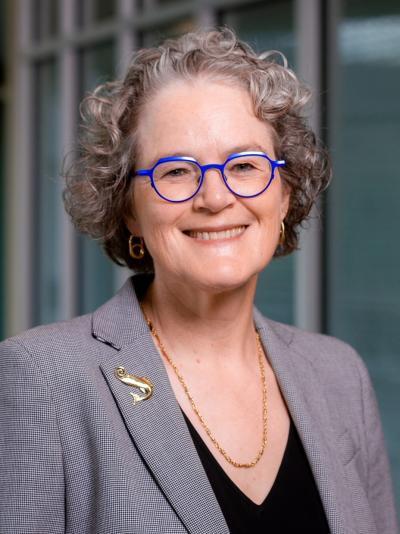
Dr. Marrazzo stepped in as the sixth NIAID Director in the fall of 2023, where she oversees a $6.3 billion budget that supports research to advance the understanding, diagnosis, and treatment of infectious, immunologic, and allergic diseases. She is internationally recognized for her research and education efforts in the field of sexually transmitted infections, especially as they affect women’s health. Dr. Marrazzo’s research in discovery and implementation science has focused on the human microbiome, specifically as it relates to female reproductive tract infections and hormonal contraception; prevention of HIV infection using biomedical interventions, including preexposure prophylaxis (PrEP) and microbicides; and the pathogenesis and management of bacterial vaginosis (BV), sexually transmitted diseases in HIV-infected persons, and management of antibiotic resistance in gonorrhea.
Her investigative career has been characterized by leadership of progressively larger interdisciplinary teams working to advance translational science in two major areas: approaches to detect non-cultivatable or highly fastidious bacteria in BV and oral and vaginal PrEP for HIV infection in women. In early studies, Dr. Marrazzo and her collaborators described bacterial diversity in BV that was much greater than previously thought. They also identified previously undescribed anaerobes in the Clostridiales group that were highly specific for BV. This work redefined understanding of the complex nature of this enigmatic syndrome. Another signal contribution has been her work to advance oral and vaginal PrEP for HIV infection in women. Dr. Marrazzo led the NIH-funded VOICE Study in which over 12,000 women were screened to enroll 5,729 participants in sub-Saharan Africa. The intent-to-treat analysis showed no efficacy and demonstrated that this surprising result was largely due to low adherence, despite participants’ self-reports of high adherence. Working with behavioral science colleagues to understand these responses, her team established the need for reliable biomarkers of adherence in intervention studies of healthy young people at risk for HIV.
Prior to her position at NIAID, Dr. Marrazzo was Director of the Division of Infectious Diseases at the University of Alabama at Birmingham. There she had the opportunity and resources to lead in the areas she cares deeply about: research in discovery and implementation science; the development and support of trainees; the advancement of underrepresented minorities in medicine and leadership; promoting meaningful dialogue with communities, and patient care.
Dr. Marrazzo has served as a mentor to trainees at all stages of professional development and was the recipient of the American Sexually Transmitted Diseases Association’s Distinguished Career Award, the highest recognition of contributions to research and mentoring in the field. She is a Fellow of the American College of Physicians and of the Infectious Diseases Society of America and is board certified in infectious disease. Dr. Marrazzo also has chaired the American Board of Internal Medicine (ABIM) Council and the ABIM Infectious Disease Specialty Board. She earned her bachelor’s degree in biology from Harvard University; her M.D. from Thomas Jefferson University, Philadelphia; and her M.P.H. in epidemiology from the University of Washington, Seattle. She completed residency and chief residency in internal medicine at Yale-New Haven Hospital.
Panel Discussion and Public Q & A
Moderator
Luis Montaner, D.V.M., D.Phil.
Vice President, Scientific Operations, The Wistar Institute
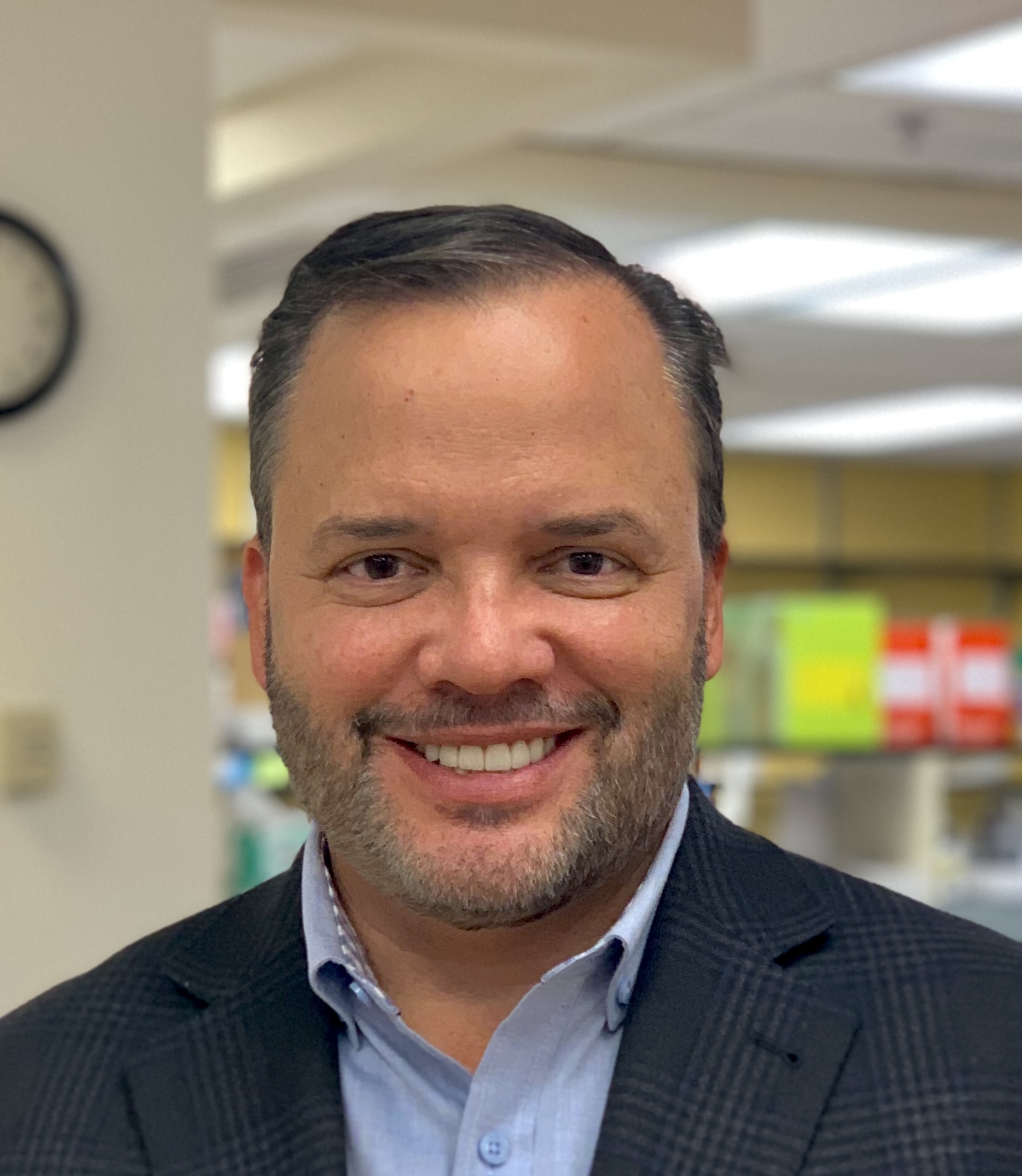
Dr. Luis J. Montaner is Vice President for Scientific Operations, Herbert Kean, MD Family Professor, and Director of the HIV-1 Immunopathogenesis Laboratory at The Wistar Institute, the nation’s first independent research institution devoted solely to biomedical science and a world leader in cancer, immunology, virology, and infectious disease research. The Montaner Laboratory oversees HIV cure-directed research, including studies on the mechanisms of rebuilding the immune system in persons living with HIV-1 (PLWH) with substance use disorder. The Montaner Lab works with an extended network of national and international collaborators and engages in partnerships with the local patient community to offer participation in research studies and education on the latest research. Dr. Montaner currently leads one of the largest NIH-supported collaboration groups focused on advancing HIV cure research under the Martin Delaney Collaboratory (beat-hiv.org). Dr. Montaner has authored more than 195 papers and serves as a reviewer and scientific advisor for multiple national and international projects and/or organizations. Dr. Montaner, originally from San Juan, Puerto Rico, and obtained his D.V.M. degree from Kansas State University in 1989 and his D. Phil. in experimental pathology from the University of Oxford, UK in 1995 as a Marshall Scholar. He joined The Wistar Institute in 1995 as an assistant professor and was promoted to professor in 2007.
Panelists
Cecilia Chung
Senior Director of Strategic Initiatives and Evaluation, Transgender Law Center

Cecilia Chung, Senior Director of Strategic Initiatives and Evaluation at Transgender Law Center, is an internationally recognized leader who advocates for HIV/AIDS awareness and access to care, LGBT equality and equity, and human rights. Cecilia has been a vocal advocate for transgender women and people living with HIV. Currently, Cecilia is a member of the PCB NGO delegation at UNAIDS, and chair of the Finance and Planning committee of San Francisco Health Commission. Cecilia is also a member of the Advisory Council of Women Living with HIV of WHO.
Cecilia has served many roles in the HIV movement including, the Board of the Asian Pacific Islander Wellness Center, being a founding producer of Trans March, she organized one of the world’s largest annual transgender events which has since been replicated in cities across the U.S. and s member of Presidential Advisory Council on HIV/AIDS. In 2015, Cecilia launched Positively Trans, a national, constituents-led project that focus on policy advocacy and leadership development of transgender people living with HIV, especially transgender women of color. Her story was featured in ABC’s docudrama, “When We Rise”.
The Honorable Venton Jones
Representative, Texas State House of Representatives
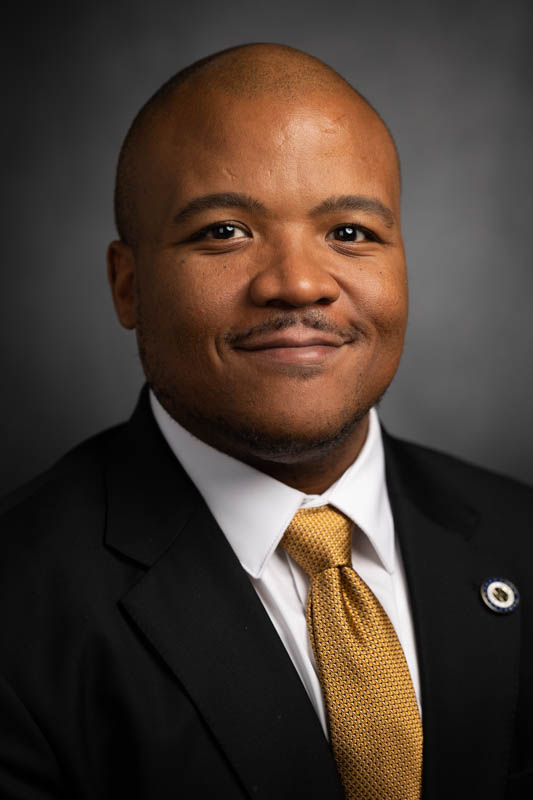
State Representative Venton Jones (Dallas) is currently serving his first term in the Texas House of Representatives. District 100 serves parts of South Dallas, West Dallas, East Dallas, Buckner Terrace, Victory Park, and Oak Cliff.
Representative Jones serves as a member of the House Committee on Public Health and the House Committee on Corrections. In addition to his committee appointments, He serves as the Legislative Chairman of the Aggie Caucus, member of the Texas House Democratic Caucus, the Texas Legislative Black Caucus, the Texas House LGBTQ Caucus, the Texas Energy & Climate Caucus, and the Legislative Study Group. Representative Jones was honored by his peers in the Texas House by being named the LGBTQ Caucus “Freshman of the Year” during the 88th Legislative Session.
Professionally, Representative Jones is a non-profit CEO, Texas Realtor, and a demonstrated servant leader. He is the Founder and CEO of the Southern Black Policy and Advocacy Network (SBPAN), where the mission of the organization is to improve health, social, and economic conditions impacting Black communities in the U.S. South. Since the beginning of his career, Representative Jones has been a tireless advocate working to improve healthcare access, fighting for marginalized communities and middle-class families, and protecting voting rights.
Representative Jones received his Bachelor of Science degree in Community Health from Texas A&M University, his Master of Science degree in Health Care Administration from The University of Texas at Arlington, and also holds a global certification as a Project Management Professional (PMP).
In his free time, Representative Jones enjoys karaoke, do-it-yourself home improvement projects, gardening, and spending time with family and friends. In addition, he is an active member of Alpha Phi Alpha Fraternity, Incorporated, and a lifetime member of the NAACP.
Lynne Mofenson, M.D.
Senior HIV Technical Advisor, Research Program, Elizabeth Glaser Pediatric AIDS Foundation

Dr. Mofenson is a pediatric infectious disease specialist, who received her M.D. with honors from Albert Einstein College of Medicine, followed by pediatric residency at Boston Children’s Hospital, and Chief Residency/Infectious Disease Fellowship at the University Massachusetts Medical School. She served as Assistant Commissioner, Division of Communicable Control for the Massachusetts Department of Public Health in the early 1980’s; in 1989 she joined the Pediatric, Adolescent and Maternal AIDS Branch at the Eunice Kennedy Shriver National Institute of Child Health and Human Development, where she was responsible for direction of research and clinical trials on prevention and treatment of pediatric and maternal HIV. After 25 years directing domestic and global research studies on pediatric and maternal HIV/AIDS, she retired in 2014, and currently serves as Senior HIV Technical Advisor for the Elizabeth Glaser Pediatric AIDS Foundation, and serves as consultant to WHO/UNAIDS/UNICEF on HIV in children and pregnant women.
Tonia Poteat, Ph.D., M.P.H.
Professor, Duke University Health System

Dr. Tonia Poteat is a Professor in the Duke University School of Nursing, Associate Director of the Duke Center for AIDS Research (CFAR) Developmental Core, and Co-Director of the Duke Sexual and Gender Minority Wellness Program. Her research, teaching, and clinical practice focus on HIV and LGBTQ health with particular attention to the health of transgender communities. Her research attends to the role of intersectional structural stigma in driving health inequities and seeks to identify strategies to advance health justice. Certified as an HIV Specialist by the American Academy of HIV Medicine and Gender Specialist by the World Professional Association for Transgender Health, she is an expert in HIV research and care with transgender persons. She founded and co-leads the Inter-CFAR Transgender Health Scientific Working Group.
Arjee Restar, Ph.D., M.P.H.
Assistant Professor, University of Washington School of Public Health

Arjee Restar is a social epidemiologist and an early-stage investigator who applies epidemiologic methods to behavioral, social, structural, and health services research and policy to address inequities in health outcomes and access, particularly as experienced by communities of transgender and nonbinary people in the US and Asia. She is expanding transgender health as a field by building research environments that produce high-quality evidence that speaks to the myriad of health priorities of transgender and nonbinary communities at-large — including addressing drivers of HIV inequities — along with community stakeholders, scientists, scholars, and trainees who are also paving this field forward. This work includes advocating for institutional policies and practices that dismantle systems of oppression, inequality, and inequity.
Closing Remarks and Tribute
RDML Timothy H. Holtz, M.D., M.P.H.
Deputy Director, NIH Office of AIDS Research (OAR)
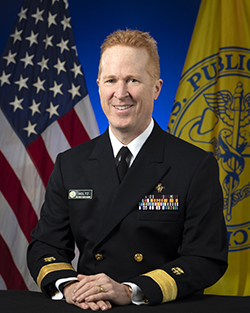
Timothy H. Holtz, MD, MPH, was named Deputy Director of the Office of AIDS Research (OAR) at the National Institutes of Health (NIH) in June 2019. As Deputy Director, Dr. Holtz provides scientific leadership including policy development and program management for the NIH HIV research program. He works with the OAR Director on coordinating the NIH HIV and AIDS research agenda to end the HIV epidemic and improve the health of people with HIV. Dr. Holtz was promoted to Rear Admiral in the U.S. Public Health Service, and an Assistant Surgeon General, in February 2020.
Between 2002–2010, Dr. Holtz served as an epidemiologist in CDC’s International TB Branch working on drug-resistant tuberculosis treatment and prevention, and TB/HIV program capacity building in Africa and Asia. He then stationed abroad from 2010–2019, serving in global HIV and TB prevention and control programs as a country program director for CDC’s Division of HIV/AIDS Prevention and the Division of Global HIV and TB. This included a tour in Thailand as Principal Investigator for a CDC HIV Prevention Clinical Research Site; followed by a tour as a CDC program director in India to implement the U.S. President’s Emergency Plan for AIDS Relief strategic objectives.
Dr. Holtz received his MD from the University of Iowa College of Medicine; an MPH (global health) from Johns Hopkins University; completed residencies in internal medicine (Harvard University) and preventive medicine (CDC); as well as a fellowship in health and human rights at Columbia University College of Physicians and Surgeons, and CDC’s Epidemic Intelligence Service fellowship.
Event Emcee
Julio Aliberti, Ph.D.,
Senior Science Advisor, NIH Office of AIDS Research (OAR)
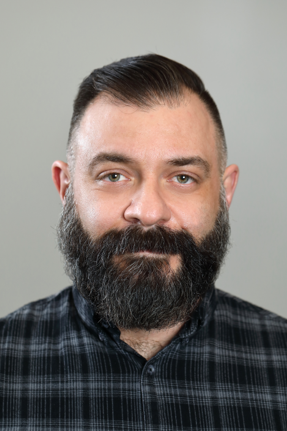
Dr. Julio Aliberti received his M.Sc. and Ph.D. in Basic and Applied Immunology from the University of São Paulo, Brazil in the field of immunoparasitology and inflammation. He then joined the Laboratory of Parasitic Diseases at the NIH National Institute of Allergy and Infectious Diseases (NIAID) for his post-doctoral training in 1998 where he focused on induction and control of innate immunity to infection. He later joined the Department of Immunology at Duke University as an assistant professor. In 2006, he joined the Division of Molecular Immunology as an associate professor at Cincinnati Children’s Hospital. His research program was focused on innate immunity to infection and control of immune responses during infection, especially during tuberculosis and cerebral malaria. He joined the Immunology Review Branch –Scientific Review Program in 2016 and has served as a Scientific Review Officer for the Immunology Review Branch – Scientific Review Program at NIAID. In 2020, he served as a program officer for the Parasitology and International Program Branch Vaccine and Immunotherapeutics Discovery program for the Division of Microbiology and Infectious Diseases at NIAID. Dr Aliberti joined the NIH Office of AIDS Research (OAR) in 2022 and his portfolio includes coordination of the Innovation Program, HIV Vaccine, Cancer and impact of climate change in HIV care continuum.
This page last reviewed on November 21, 2023

